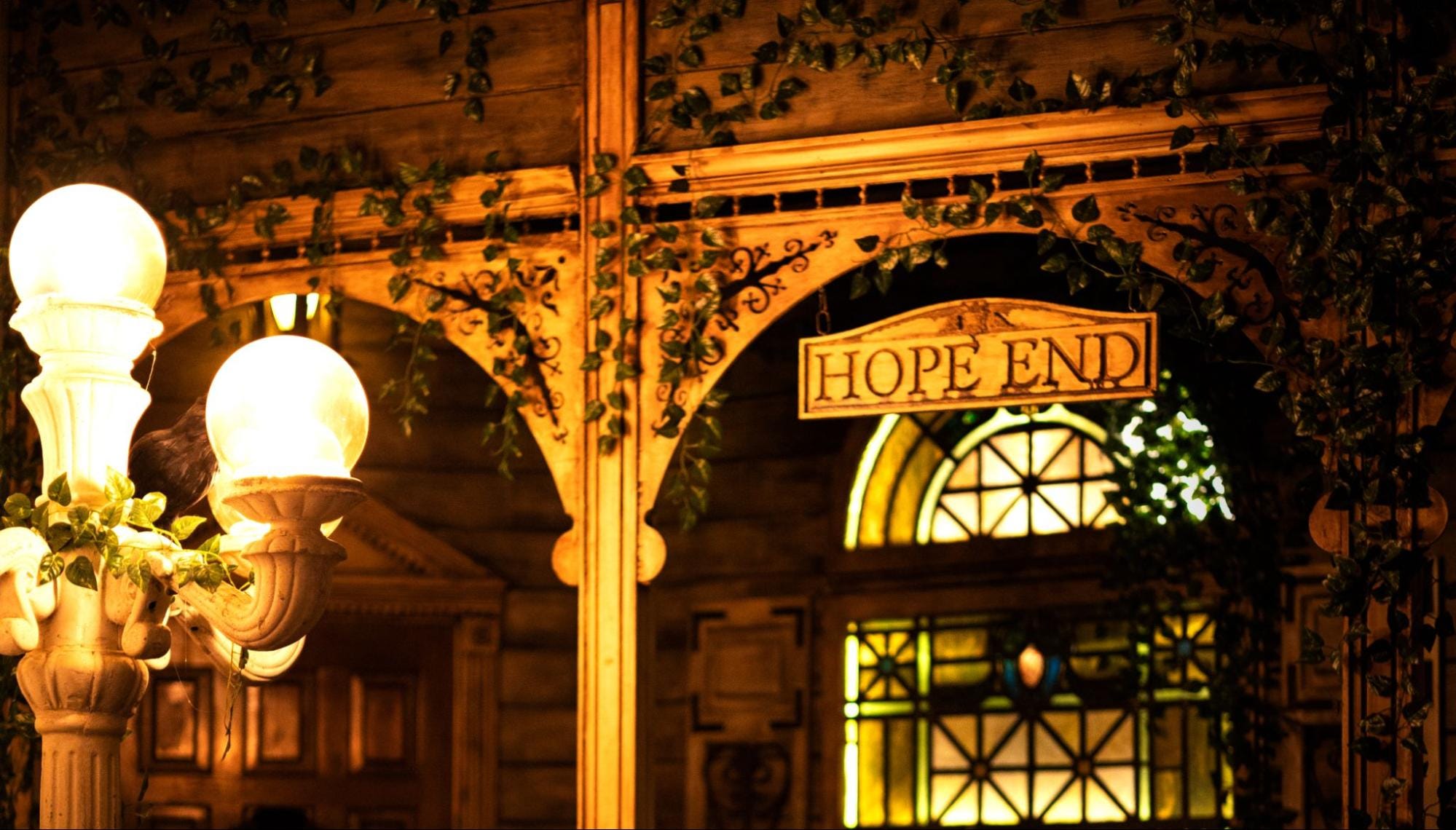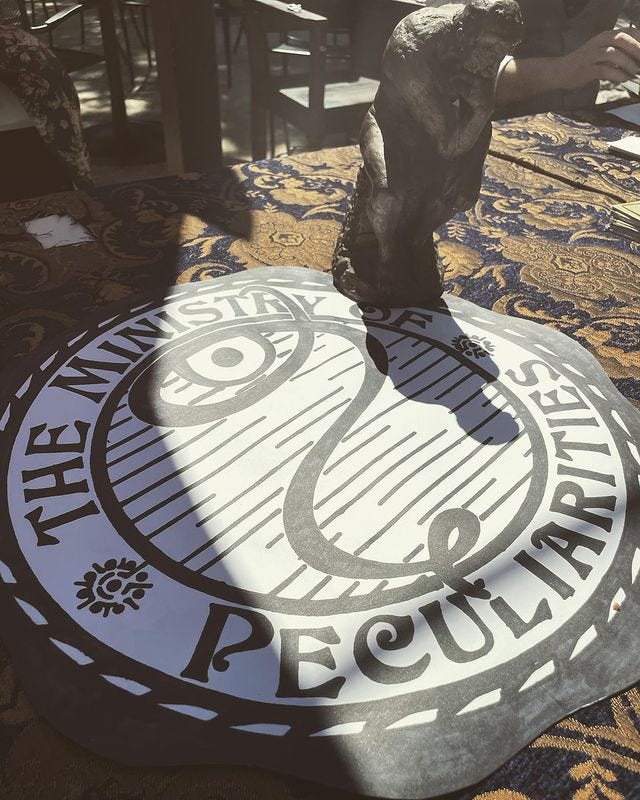The Immersive 5 with The Ministry of Peculiarities
The makers of SoCal’s most buzzed-about escape room answer the 5.


East of Los Angeles, in an unassuming strip mall just off of Route 66 one can find a portal to the strange: The Ministry of Peculiarities. In the brief time that the Ministry has been revealed to the public, the Ministry’s Hope End experience has developed the reputation for being one of the best escape games in Southern California.
The company’s participation in this year’s Los Angeles Immersive Invitational proved that they’re an extremely scrappy and creative bunch, pulling together a dynamic short form experience that blended high energy performances, puzzle mechanics, and practical effects into a cohesive narrative in under 72 hours. The Ministry is definitely one to watch in the years ahead.
—
The Immersive 5 series asks creators across the various immersive disciplines the same five questions in search of both their approach to crafting work, and the elusive nature of immersive work itself.

No Proscenium: What does “immersive” mean to you, and what terms do you use when talking about your own work?
The Ministry Of Peculiarities: “Immersive” to us has always meant being enveloped in an experience– making people part of the story, not observers. Environment is important for immersion, but in order to get people caught up in your world, we want them to be able to meaningfully interact with and even affect what’s happening around them. As a team we have always aimed to make sure that the experience isn’t broken from the moment you enter our world- from the time you visit our site, contact us, walk in the front door, to the moment it’s all over.
Terms– this one’s kind of hard: Hope End is an escape room, but we’re trying to straddle the line between that and immersive theater. So there’s no clock counting down, there are no directional locks, we’re trying to tell a story collaboratively with our guests– “immersive experience” I guess is the term we usually use, but that’s pretty general.
NP: What should every creator be thinking about first and foremost when designing for the audience?
TMoP: First we ask ourselves, “What effect do we want this to have on the audience?” We don’t only want them to have a good time and feel like they’ve been brought into our world, but we also want them to leave with something to think about. This starts with a compelling reason for telling a story– what are the stakes? Why this and not something else?
NP: What did you wish you knew when you were starting out with this stuff and what’s the one thing you’d tell a creator starting out today?
TMoP: I think one thing that all of us at TMoP can agree on is that the road to creating isn’t always direct and it will be met with challenges, both monetary and conceptual. We designed Hope End for people that are fully willing to assume a role and explore choices from the moment they walk in the lobby, but there are also those who prefer puzzles and environment to narrative, and a surprising amount of those who have never done an escape room or immersive show before. Taking a concept to reality means adapting to unexpected events as they arise and working within your capabilities. Ultimately, the greatest advice is to seek guidance from fellow creators. The community is overwhelmingly supportive. We wouldn’t be where we are today without support, advice, and encouragement from Tommy Honton, James Cowan and the Speakeasy Society, or Melinda DeKay.
NP: Why do this kind of work and not something more “traditional” that might have more mainstream appeal at the moment?
TMoP: We all work traditional jobs and it’s the exact reason we have gravitated towards this industry– it’s a creative outlet for us and a chance to transcend our day-to-day identities of “I’m a teacher/electrician/consultant” or whatever. In opening The Ministry it’s been so rewarding to be able to connect/experiment/play with our audience– it’s much more satisfying than anything we have done before.
NP: What inspirations — and anything is fair game here — are currently shaping your creative practice?
TMoP: An obsession with shows such as the original Twilight Zone, Twin Peaks, & X-Files has had its obvious influence on our current ethos, but we try to mix it with offbeat, dated humor inspired by Paul Harrison’s old-time radio shows and a touch of the inept bureaucracy that has become all too familiar to us.
Writers like Edith Wharton, Booth Tarkington, and T.S. Eliot all had strong influences on the narrative style of Hope End. In terms of puzzles and interaction, we admire old Sierra and LucasArts point-and-click games and, more recently, the Rusty Lake series, for letting the challenges arise from the story, rather than the other way around.
In working on our next experience, we plan on drawing from Baudrillard, ‘Pataphysics, and the Bardo Thodol among other things.
Discover the latest immersive events, festivals, workshops, and more at our new site EVERYTHING IMMERSIVE, new home of NoPro’s show listings.
NoPro is a labor of love made possible by our generous Patreon backers. Join them today!
In addition to the No Proscenium website, our podcast, and our newsletters, you can find NoPro on Twitter, Facebook, YouTube, Instagram, in the Facebook community Everything Immersive, and on our Discord.